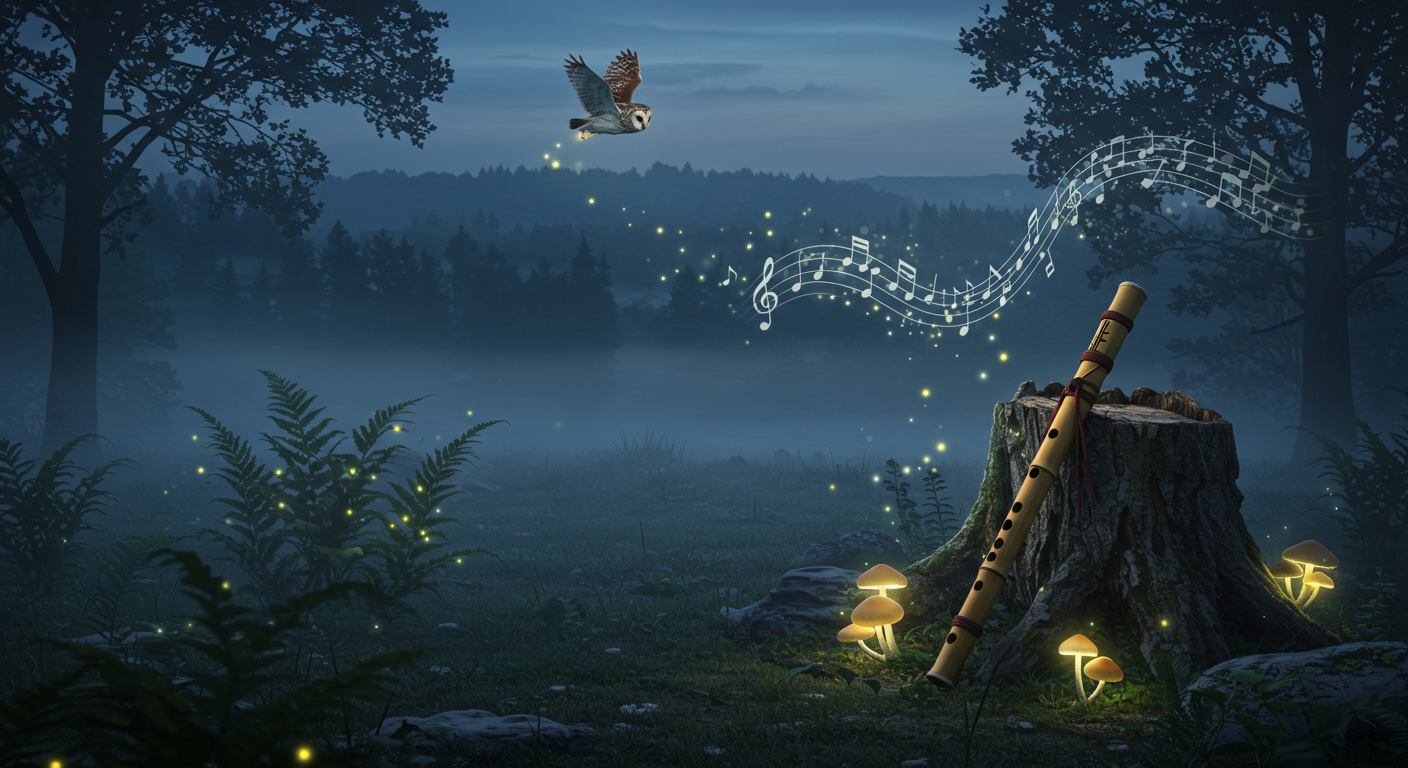Introduction: My Journey into After Work Relaxation
After work relaxation became a turning point in my life when I noticed that stress followed me home every evening. I would close my laptop at 6 p.m., but my mind kept racing. Instead of enjoying dinner, I replayed conversations from the day, worried about unfinished emails, and even drafted tomorrow’s to-do list in my head.
This pattern left me exhausted. Sleep became shallow, mornings were heavy, and weekends disappeared in a blur of recovery. I thought this was normal—that fatigue was just the cost of hard work. But one evening, I stumbled across a bamboo flute track on YouTube. Curious, I dimmed the lights, closed my eyes, and practiced deep breathing.
Ten minutes later, something shifted. The tightness in my shoulders softened. My thoughts slowed. For the first time in weeks, I felt present. That was the beginning of my evening relaxation ritual, and it changed everything.
In this blog, I’ll share why after work relaxation matters, practical ways to build your own routine, and how music, breathing, and mindful rituals can restore both energy and peace.
Why Evening Relaxation is Important
The Invisible Weight of Daily Stress
Modern work doesn’t stop when you leave the office. Emails arrive late at night. Phones buzz with notifications. Even when the workday “ends,” the mind stays on duty. This invisible stress adds up, affecting not only our mood but also our long-term health.
Health Benefits of Evening Calm
Research shows that intentional evening relaxation lowers cortisol, the body’s stress hormone. When cortisol stays elevated, it disrupts sleep cycles, weakens the immune system, and increases fatigue.
By practicing after work relaxation, you can:
- Lower blood pressure and heart rate
- Prepare your brain for deep sleep
- Restore focus and creativity
- Strengthen emotional resilience
My Experience
Before creating my ritual, I often carried irritability into family conversations. Small issues felt big. But once I introduced calming practices like music and mindful breathing, I noticed a huge difference. My evenings became lighter, conversations warmer, and mornings more energized.
How to Relax After Work
Setting the Mood
Environment is the foundation of evening calm. Think of it as building a transition bridge between “work mode” and “rest mode.”
- Lighting: Switch from harsh overhead bulbs to soft lamps or candles.
- Space: Dedicate a corner to relaxation—a chair, mat, or cushion you use only for winding down.
- Objects: A cozy blanket, essential oils, or even a favorite mug of tea can help anchor the ritual.
When I step into my “relaxation corner,” my body already knows it’s time to slow down.
Music and Breathing
Music has the power to soothe the nervous system. The bamboo flute, with its warm and airy tones, blends beautifully with slow breathing. Together, they invite the parasympathetic nervous system—the body’s “rest and digest” mode—to take over.
Try this breathing exercise with music:
- Inhale for 4 counts
- Hold for 2 counts
- Exhale for 6 counts
- Pause for 2 counts
Repeat for 10 minutes while listening to a flute track. You’ll notice your mind becoming quiet and your body lighter.
Progressive Relaxation
Another powerful technique is progressive muscle relaxation. As the music plays, tense and release each muscle group, starting from your toes and moving up to your head. This method relieves physical stress stored in the body.
What Music to Listen
Choosing the right music is essential for after work relaxation. Here are some options:
- Bamboo Flute + Nature Sounds: Birds, rain, or streams layered with flute tones create a grounding effect.
- Bamboo Flute + Soft Piano: Gentle harmonies bring emotional warmth.
- Solo Bamboo Flute: Perfect for deep breathing or meditation.
👉 My recommendation: [Soojz| The Minda studio] – “Evening Bamboo Flute Healing Ritual.” It’s a calming 30-minute track I use most nights.
Lifestyle Habits That Support Relaxation
Evening relaxation doesn’t exist in isolation—it connects with how you live your entire day.
- Nutrition: A heavy dinner often makes relaxation harder. A light, balanced meal improves calmness.
- Movement: A 10-minute evening walk lowers stress hormones and eases digestion.
- Screen Detox: Blue light from phones or laptops tricks the brain into “day mode.” Turning screens off an hour before bed deepens sleep.
- Hydration: Herbal teas like chamomile or peppermint prepare both mind and body for rest.
These small choices amplify the effect of your relaxation ritual.
Tips for Daily Stress Management
Consistency is key. A five-minute practice daily is more powerful than a one-hour session once a week.
- Anchor it to routine: Pair relaxation with something you already do, like brushing teeth or making tea.
- Protect your time: Treat it as a non-negotiable appointment.
- Be flexible: Some nights may allow only a short session, and that’s okay.
- Write it down: Journaling a single sentence about your day can help close mental loops.
When I began writing one gratitude sentence after listening to flute music, I felt closure that work emails could never provide.
Case Studies: How Others Use After Work Relaxation
The Teacher
After long days of teaching, Maria uses flute music and stretching to release tension. She notices more patience with her children at home.
The Nurse
David, a night-shift nurse, listens to bamboo flute tracks in the car before heading into work. It helps him shift mindset and recharge between shifts.
The Analyst
Like me, Alex works with data. Staring at screens all day left him drained. By integrating breathing with music, he found evenings no longer disappeared in scrolling but became restorative.
These examples show that after work relaxation adapts to any lifestyle.
Scientific Backing for Relaxation
Relaxation is more than “feeling good.” It’s supported by science.
- Cortisol Regulation: Studies show music therapy lowers cortisol and improves emotional stability.
- Parasympathetic Activation: Breathing exercises stimulate the vagus nerve, calming the heart and digestion.
- Sleep Quality: Evening relaxation improves deep sleep cycles, boosting memory and concentration.
According to the American Psychological Association, consistent stress management practices protect long-term health and performance (source).
Building Your Evening Ritual
Here’s a suggested step-by-step practice you can try tonight:
- Dim the lights and prepare your relaxation space.
- Play bamboo flute music for at least 20 minutes.
- Practice breathing or progressive relaxation.
- Stretch gently—neck, shoulders, back.
- Write one gratitude sentence.
The key is repetition. Over time, this sequence becomes a natural signal for the body to release stress.
| Ritual Type | Time Needed | Steps | Benefits |
|---|---|---|---|
| Quick Reset | 5–10 minutes | Dim lights → Play flute music (5 min) → Practice 4-6 breathing | Stress release, mental clarity |
| Balanced Routine | 15–20 minutes | Relaxation space → Flute + deep breathing → Gentle stretches → Gratitude journaling | Relaxed body, calmer mind |
| Full Ritual | 30–40 minutes | Prepare space (candles/tea) → Bamboo flute track → Progressive relaxation → Gentle yoga → Journaling reflection | Deep calm, improved sleep, full stress reset |
Reader Reflection: Your Experience
What does after work relaxation look like for you? Do you listen to music, stretch, or practice meditation?
I’d love to hear your routine. Share your experience in the comments. You may inspire others to try something new.
Internal & External Links
- 🔗 Related Post: Mindful Breathing Made Simple: Relax and Focus with Bamboo Flute
- ↗ External Resource: APA Stress Management Tips
Conclusion: Restore Balance Every Evening
After work relaxation is not optional—it is essential for well-being. By setting the mood, practicing mindful breathing, and listening to bamboo flute music, you can release stress and restore energy.
My journey taught me that slowing down at night is the secret to showing up stronger the next morning. Productivity doesn’t come from working longer, but from resting wisely.
So tonight, give yourself permission to pause. Breathe deeply. Let the music guide you into calm. Tomorrow will be brighter because of the choice you make today.






